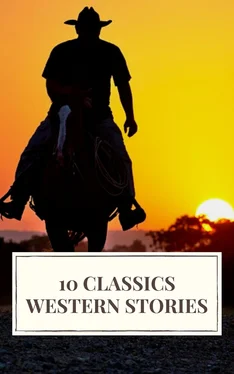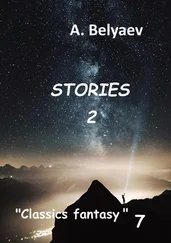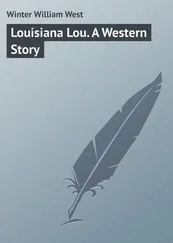The pestilence that had so ravaged the household of Multnomah was spread widely now; and every band as it departed from the camp left death behind it,—aye, took death with it; for in each company were those whose haggard, sickly faces told of disease, and in more than one were those so weakened that they lagged behind and fell at last beside the trail to die.
The weather was very murky. It was one of the smoky summers of Oregon, like that of the memorable year 1849, when the smoke of wide-spread forest fires hung dense and blinding over Western Oregon for days, and it seemed to the white settlers as if they were never to breathe the clear air or see the sky again. But even that, the historic “smoky time” of the white pioneers, was scarcely equal to the smoky period of more than a century and a half before. The forest fires were raging with unusual fury; Mount Hood was still in course of eruption; and all the valley was wrapped in settled cloud. Through the thick atmosphere the tall firs loomed like spectres, while the far-off roar of flames in the forest and the intermittent sounds of the volcano came weirdly to the Indians as they passed on their mournful way. What wonder that the distant sounds seemed to them wild voices in the air, prophecying woe; and objects in the forest, half seen through the smoke, grotesque forms attending them as they marched! And when the bands had all gathered on the island, the shuddering Indians told of dim and shadowy phantoms that had followed and preceded them all the way; and of gigantic shapes in the likeness of men that had loomed through the smoke, warning them back with outstretched arms. Ominous and unknown cries had come to them through the gloom; and the spirits of the dead had seemed to marshal them on their way, or to oppose their coming,—they knew not which.
So, all day long, troop after troop crossed the river to the island, emerging like shadows from the smoke that seemed to wrap the world,—each with its sickly faces, showing the terrible spread of the pestilence; each helping to swell the great horror that brooded over all, with its tale of the sick and dead at home, and the wild things seen on the way. Band after band the tribes gathered, and when the sun went down the war-chief’s obsequies took place.
It was a strange funeral that they gave Multnomah, yet it was in keeping with the dark, grand life he had lived.
A large canoe was filled with pitch and with pine-knots,—the most inflammable materials an Oregon forest could furnish. Upon them was heaped all that was left of the chief’s riches, all the silks and velvets that remained of the cargo of the shipwrecked vessel lost upon the coast long before. And finally, upon the splendid heap of textures, upon the laces and the damasks of the East, was laid the dead body of Multnomah, dressed in buckskin; his moccasins on his feet, his tomahawk and his pipe by his side, as became a chief starting on his last journey.
Then as night came on, and the smoky air darkened into deepest gloom, the canoe was taken out into the main current of the Columbia, and fire was set to the dry knots that made up the funeral pyre. In an instant the contents of the canoe were in a blaze, and it was set adrift in the current. Down the river it floated, lighting the night with leaping flames. On the shore, the assembled tribe watched it in silence, mute, dejected, as they saw their great chief borne from them forever. Promontory and dusky fir, gleaming water and level beach, were brought into startling relief against the background of night, as the burning vessel neared them; then sank into shadow as it passed onward. Overhead, the playing tongues of fire reddened the smoke that hung dense over the water, and made it assume distorted and fantastic shapes, which moved and writhed in the wavering light, and to the Indians seemed spectres of the dead, hovering over the canoe, reaching out their arms to receive the soul of Multnomah.
“It is the dead people come for him,” the Willamettes whispered to one another, as they stood upon the bank, watching the canoe drift farther and farther from them, with the wild play of light and shadow over it. Down the river, like some giant torch that was to light the war-chief along the shadowy ways of death, passed the burning canoe. Rounding a wooded point, it blazed a moment brilliantly beside it, and as it drifted to the farther side, outlined the intervening trees with fire, till every branch was clearly relieved against a flaming background; then, passing slowly on beyond the point, the light waned gradually, and at last faded quite away.
And not till then was a sound heard among the silent and impassive throng on the river-bank. But when the burning canoe had vanished utterly, when black and starless night fell again on wood and water, the death-wail burst from the Indians with one impulse and one voice,—a people’s cry for its lost chief, a great tribe’s lament for the strength and glory that had drifted from it, never to return.
Among a superstitious race, every fact becomes mingled more or less with fable; every occurrence, charged with fantastic meanings. And there sprang up among the Indians, no one could tell how, a prophecy that some night when the Willamettes were in their direst need, a great light would be seen moving on the waters of the Columbia, and the war-chief would come back in a canoe of fire to lead them to victory as of old.
Dire and awful grew their need as the days went on; swift and sweeping was the end. Long did the few survivors of his race watch and wait for his return,—but never more came back Multnomah to his own.
Chapter 5 AS WAS WRIT IN THE BOOK OF FATE.
A land of old upheaven from the abyss
By fire, to sink into the abyss again,
Where fragments of forgotten peoples dwelt.
Tennyson.
And now our tale draws to a close. There remains but to tell how the last council was held on Wappatto Island; how Mishlah the Cougar, chief of the Mollalies, died; and how the prophecy of the Bridge was fulfilled.
The morning after the obsequies of Multnomah, the chiefs met in the grove where the great council of the tribes had been held only a few weeks before. The leaves, which had been green and glossy then, were turning yellow and sickly now in the close hot weather. All Nature seemed full of decay.
The chiefs were grouped before the vacant seat of Multnomah; and the Willamette tribe, gathered from canyon and prairie and fishery, looked on, sole spectators of the proceedings,—for none of the allies were present. The ravages of the pestilence had been terrible. Many warriors were missing from the spectators; many chiefs were absent from the council. And there were some present from whom the others shrunk away, whose hot breath and livid faces showed that they too were stricken with the plague. There were emaciated Indians among the audience, whose gaunt forms and hollow eyes told that they had dragged themselves to the council-grove to die. The wailing of the women at the camp, lamenting those just dead; the howling of the medicine-men in the distance, performing their incantations over the sick; the mysterious sounds that came from the burning forest and the volcano,—all these were heard. Round the council the smoke folded thick and dark, veiling the sun, and shutting out the light of heaven and the mercy of the Great Spirit.
The chiefs sat long in silence, each waiting for the other to speak. At length arose a stately warrior famous among the Willamettes for wisdom and prudence.
“We perish,” said the chief, “we melt away before the breath of the pestilence, like snow before the breath of the warm spring wind. And while we die of disease in our lodges, war gathers against us beyond the ranges. Even now the bands of our enemies may be descending the mountains, and the tomahawk may smite what the disease has spared. What is to be done? What say the wise chiefs of the Willamettes? Multnomah’s seat is empty: shall we choose another war-chief?”
Читать дальше












